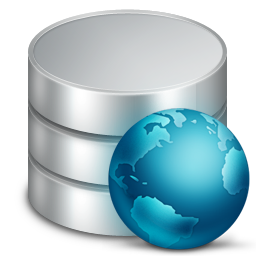While WordPress is very easy to get up and running, making your site speedy requires a bit more work. Improving website performance is an ongoing process that takes a lot of trial and error. If you want to get right to how you can speed up your WordPress website, scroll down.
Research has shown if your site takes more than four seconds to load, you could lose up to 25% of your visitors. Sites that take 10 seconds to load – lose up to 35-40% of visitors. So what can you do to make your site faster? Without taking the right precautions, you could end up with a sluggish site that will be abandoned by the potential and repeat visitors. Additionally, Google has recently included site speed in it’s ranking algorithm. In easier words, from now on your site’s speed will affect its SEO – so if your site is slow, you are not only losing customers and subscribers but you are also reducing your website rankings in search engines. Without further ado, let’s dive in deeply and try to figure out the main ways to keep your WordPress website load time low and therefore, to make the visitors happy:
Get a Proper Hosting Provider
 Hosting isn’t an area to skimp on. Among many other important performance-related things, a web hosting company and hosting package have a huge impact on the speed of a website. If you’re serious about your website performance, make sure to choose the proper hosting provider. To make things easier for you, WordPress recommends three sites above all others, which are: Bluehost, DreamHost, and Laughing Squid. Many bloggers also recommend adding a fourth site: Inmotion.
Hosting isn’t an area to skimp on. Among many other important performance-related things, a web hosting company and hosting package have a huge impact on the speed of a website. If you’re serious about your website performance, make sure to choose the proper hosting provider. To make things easier for you, WordPress recommends three sites above all others, which are: Bluehost, DreamHost, and Laughing Squid. Many bloggers also recommend adding a fourth site: Inmotion.
Choose a Solid Theme
Once you’ve chosen the right hosting for your WordPress website, the next step is to look for a theme. Choosing a solid theme is paramount to website speed, as it usually reduces the need for plugins. Besides, a high-quality theme isn’t just about how it looks – it matters how well it has been designed and how well it conforms to the WordPress Theme Development Standards. Unfortunately, WordPress themes are not all created equal – some are very fast and well-coded while others are bloated with hundreds of unnecessary bells and whistles. So, take your time to carefully examine and choose only actively developed and well-supported themes.
Install A Cache Plugin
Another way to speed up a WordPress site is through browser caching. Caching means storing website parts so they only need to be loaded once instead of every time a user visits your site. A cache plugin is an absolute must-have plugin that simplifies the process of a website running. A handful of great caching plugins are currently available, however, W3 Total Cache is often treated as one of the best. It’s effective and simple to use, there are some advanced techniques you can use here, but to start with, just install and activate it and leave the default options on.
 Use a Content Delivery Network
Use a Content Delivery Network
CDN is among the most effective ways to absolutely turbocharge the speed of a site. Specifically, a CDN (content delivery network) is a high-performance network of servers across the globe that takes all static files from a particular website and lets visitors download them as fast as possible by serving the files on servers as close to them as possible. In other words, content is served from the location that is closest to visitors – if your visitor is from Europe, for example, then your content will come from a server in Europe.
Reduce the Number of Plugins
One of the great things about WordPress is the number of plugins it supports, but if you have a large number installed that can probably lead to software conflicts and even cause a website to crash. The solution is quite simple – only use what’s absolutely necessary and delete the rest. Also, make sure you keep your plugins up to date. Besides, it’s strongly recommended to identify the plugins that are slowing a website down. P3 (Plugin Performance Profiler) is one of the known plugins showing the impact of some plugins on page-loading time. It makes it extremely easy to spot any plugins that slow down a website and then make the decision about whether to keep them, replace them or remove them entirely.
Optimize Images
Images take up the majority of most websites bandwidth. Being the largest files on a site, if they aren’t compressed they can take ages to load. Luckily there are some great tools out there to compress files. WP Smush is a great plugin that automatically compresses images as you upload them to the media library. All compression is “lossless,” which means any difference in the quality of images will be noticeable. One more nice thing about WP Smush.it is that it works retroactively – if thousands of images are saved in a media library, you can run them all through the plugin, compressing them to a more manageable size.
Clean Up the Database
It is a big advantage of WordPress to autosave everything, but the biggest disadvantage here is that a database usually gets filled with thousands of post revisions, trackbacks, pingbacks, unapproved comments and trashed items pretty quickly. Database cleanup and optimization tool called WP-Optimize is a solution to the problem, which routinely clears out a database’s trash, keeping the database efficient and filled only with what needs to be kept. Of course, when doing anything to your database, always backup first.
Bottom Line
This is a quick round-up of simple measures you can put in place to speed up your WordPress website performance. Optimizing your site can make a big difference in site speed, encouraging them to stick around and engage with your content. Be sure to follow the aforementioned steps to improve the loading speed of your WordPress website and improve the experience people have when visiting your site.
Searching the way to become a part of WordPress glory? Your search ends here. aisite automated migration service can more than help to ensure your migration to WordPress go as straightforward and trouble-free as possible.










